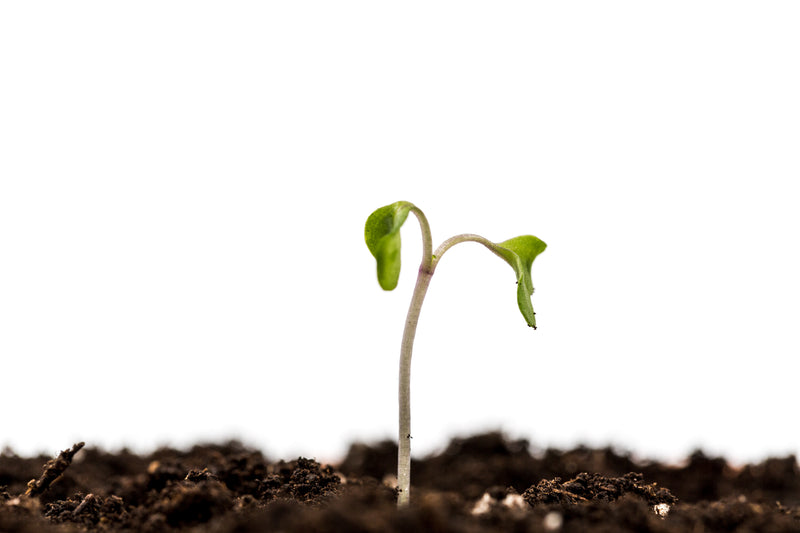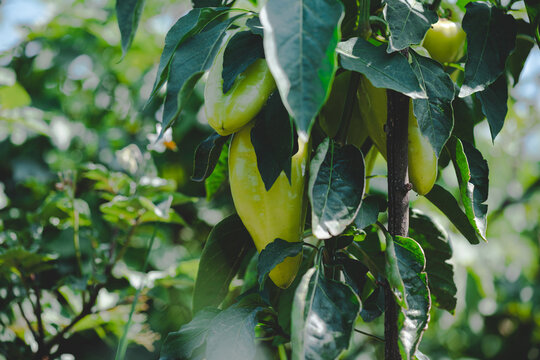Have you been searching for a more simple and effective method of gardening? In that case, perhaps you’ve heard of hydroponic gardening. As it turns out, there’s a good reason why hydroponics is one of the most well-liked techniques for cultivating plants indoors. Hydroponic gardening is discussed in this article, along with its top five advantages and how it can be used to improve productivity.
The Benefits of Hydroponic Gardening: Easier and Faster Growth
The benefits of hydroponic gardening include faster and easier growth, increased yields, water conservation, and efficiency. Hydroponics allows gardeners to grow plants in a nutrient-rich water solution rather than soil, which results in increased sustainability and health for the plants. In this short guide, we’ll look at the five main benefits of hydroponics: easier growth, higher yield potential, more efficient use of water, better plant health, and friendliness to the environment.
Hydroponic Farming Increases Yields
Compared to soil-based gardening, hydroponics is a more environmentally friendly method of plant cultivation. Instead of getting their water and nutrients from the soil, plants in a hydroponic system draw from a water tank. Water and energy consumption for plant cultivation are reduced in this system, further increasing its efficiency. Hydroponic gardening has many advantages, including:
- Easier and Faster Growth: Plants grown in hydroponic systems mature more rapidly than their soil-grown counterparts because they don’t have to compete with soil for nutrients. This means their full potential can be realized much sooner than with regular plants.
- Increased Yields: More crops can be grown in the same amount of space using hydroponic farming techniques compared to conventional gardening. In other words, you can grow more food with the same amount of land and water by employing hydroponic methods.
- Water Conservation and Efficiency: A hydroponic system uses less water than traditional gardening methods, which means that you can conserve water in your garden. This is especially important in areas where water resources are scarce.
- The Benefits of Nutrient-Rich Soil for Hydroponic Gardening: Since the soil in hydroponic gardens is already rich in nutrients, the plants can flourish and yield abundantly. In traditional gardens, the soil’s nutrients are slowly used up, but this method keeps the soil’s fertility.
- Maximizing Efficiency with Automated Hydroponic Systems: For the same yield, automated hydroponic systems save time and water compared to conventional gardening. The importance of this cannot be overstated, especially in places where supplies are limited.

Water Conservation and Efficiency with Hydroponics
The hydroponic gardening method provides a more efficient way to grow plants by using mineral-rich water and supplies instead of soil. This allows for better water conservation and increased yields compared to traditional gardening methods. There are various types of hydroponic systems that are available for home gardeners to use, each with its own set of benefits. Understanding how these systems work will help you maximize their efficiency and reap the full benefits of this type of gardening.

The Benefits of Nutrient-Rich Soil for Hydroponic Gardening
The Benefits of Nutrient-Rich Soil for Hydroponic Gardening
A well-balanced hydroponic garden relies on nutrient-rich soil to thrive. Nutrient-rich soil is essential for healthy plant growth, and it’s easy to create with a hydroponic system.
- Increased Yields: Hydroponic gardens produce larger yields than traditional gardens because they use less water and fertilizer.
- Water Conservation: Hydroponic gardens use far less water than traditional gardens, which conserves water resources.
- Efficiency: Hydroponic gardens are more efficient than traditional gardens because they use less land and produce more food with the same amount of resources.
- Sustainable Practices: Hydroponic gardening is a sustainable practice because it uses less land and water than traditional gardening methods.
Maximizing Efficiency with Automated Hydroponic Systems
Hydroponic systems, especially those that are automated, produce high yields when used to cultivate plants. Your plants’ watering, temperature, and lighting can all be precisely managed by the use of cutting-edge technology. If you do this, your plants will get the proper amount of water and nutrients, leading to increased growth and harvests. When deciding on an automated system, it’s important to keep in mind a few key criteria.:
- A timer that sets a specific watering time for each plant or group of plants
- A water level display that alerts you when the system needs more water
- Water filtration options (to prevent mineral build-up)
- A ventilation system to keep the growing area clean

How to Use Hydroponics for Maximum Efficiency
How to Use Hydroponics for Maximum Efficiency
It’s possible to get the most out of your hydroponic garden by taking a few simple steps. In the beginning, you need to guarantee that you have adequate tools. To efficiently distribute water and fertilizer throughout your garden, you’ll need a water pump, a storage tank, and some pipes. Controlling the watering schedule and maintaining healthy plants can also be assisted by the use of timers and sensors.
Growing plants in soil that drains well is another way to increase productivity. Doing so will cut down on the amount of water required to sustain plant growth. Finally, make sure you know your hydroponics inside and out so you can fix any issues right away.
What are the maximum efficiency benefits of hydroponics compared to soil?
When considering the hydroponics vs soil comparison, it’s clear that hydroponics offers maximum efficiency benefits. Hydroponic systems use less water, require less space, and can produce higher yields compared to traditional soil-based farming. Additionally, hydroponics eliminates the need for weeding and reduces the risk of soil-borne diseases.
Sustainable Hydroponic Gardening: A Greener Way to Grow
A sustainable hydroponic garden uses less water and generates no waste, making it a more environmentally friendly way to grow plants.
Understanding the Different Types of Hydroponic Systems
There are a variety of different types of hydroponic systems, each with its own set of benefits. Here are the most common types of hydroponic systems and their benefits:
Aeroponics: An air or mist flow is used in this hydroponic system to promote plant growth. Because it requires less maintenance than other hydroponic methods, aeroponics is frequently used for growing leafy greens. Since aeroponics doesn’t necessitate as much water as other types of hydroponic systems, it’s also more efficient.
Drip irrigation: Hydroponic systems like this one rely on a distribution network of tiny, low-pressure water droplets to foster plant growth. Container gardens rely heavily on drip irrigation for the success of their plant crops. It is more effective than conventional irrigation methods like sprinklers while requiring less labour than other hydroponic systems.
Fish culture: For the purpose of decomposing organic matter and releasing nutrients into the soil, fish are used in this type of hydroponic system. Greens and other vegetables grown in containers are a common application of fish culture. It’s more productive than digging up fields by hand and less labor-intensive than other hydroponic systems.
Soil-less gardening: There is no soil involved in this hydroponic setup. Vegetable and fruit containers are ideal for soilless gardening. Less work is required compared to other hydroponic systems, and it produces better results than digging in the dirt. In sum, hydroponics is an effective method that can be of great use to farmers and gardeners of all levels. Hydroponic gardening has undeniable benefits, including higher yields, water efficiency, nutrient-rich soil, and the ability to be automated. Knowing the different kinds of hydroponic systems out there will help you get the most out of this environmentally friendly farming method, whether you’re trying to grow crops for profit or just want a more beautiful garden at home. All types of gardeners can benefit from hydroponics because it is a more sustainable way to grow nutritious food without compromising on taste or texture.

